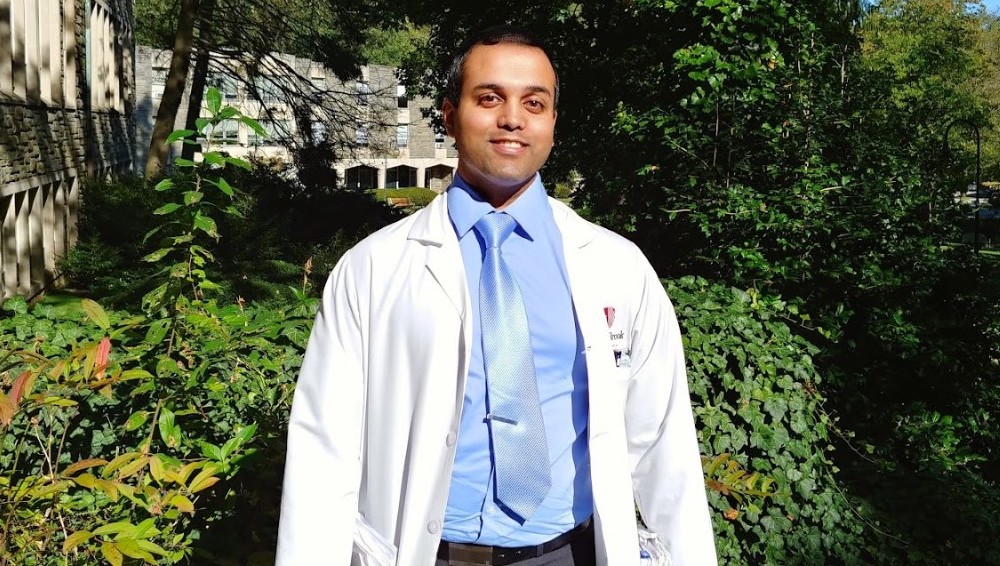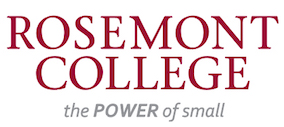Jeffy Mathew, MD '13
Tawny Sverdlin - November 11, 2019

Born and raised in Queens (NY), Jeffy Mathew went to Rosemont College from 2010-2013. Then, he attended Drexel University College of Medicine from 2013 - 2017 as part of a combined Fast-Track 7 year BA-MD program. Currently, he is a third-year internal medicine resident at Stony Brook University Hospital. He is currently interviewing a fellowship in Pulmonary and Critical Care.
Rosemont College: Looking back at your education at Rosemont College and in particular the Biology department, how well prepared were you for medical school?
Jeffy Mathew: One of the biggest strengths that are developed and honed by Rosemont's students is public speaking. I don't think that I have ever given as many presentations as I have during my time at Rosemont, and I feel that was possible because of the class sizes that allowed for close interactions between faculty and students.
Those presentations allowed me to become comfortable in public speaking, which have helped me to give great presentations in medical school and residency. The biology program specifically also offered excellent preparation for medical school.
There were a wide range of courses offered, including many of the more difficult ones such as immunology, molecular genetics, and biochemistry, that provided a strong foundation as well as buffer for some of the shock of seeing these subjects in a larger volume in medical school.
RC: What suggestions do you have for the current students who are interested in medical school?
JM: Find something that you can become passionate about and get involved, even if it's not medical. Best case scenario, it will make you stand out from other applicants and worse case scenario, you'll be a more interesting person. I've met countless people in medical school who identify themselves as artists, dancers, writers, cooks, etc among the many other hats they wear. Interviewers, whether it be for a spot in medical school or for a job several years from now, want to see that you are able to commit to something and cultivate it for the long run.
It's a good idea to volunteer as well. Medicine is so broad that it's impossible to know all its sides until you're in the middle of it in residency, but any experience you get will help decide if it's the career path you want to pursue. Leadership is also equally as important if not more. Physicians take charge in leading a team of students, residents, nurses, and other healthcare staff in caring for patients and so it's good to foster this quality early on.
Research is another aspect that's important in making a well-rounded applicant. Clinical research is great, especially since this is the type most commonly done as you move further along in your career. It can also be tough to become involved in during the early stages while still in school but that shouldn't be a deterrent at this point. The act of doing some form of research speaks to the fact that you are thinking critically and trying to advance knowledge based on what you've learned.
RC: How helpful was the research experience conducted at Rosemont to you in medical school and beyond?
JM: Rosemont was the first place I ever did research and the benefits of doing it have been carried forward well into medical school and beyond. The process of learning the background science of a research question, carrying out a study, and then presenting findings all have their own inherent rewards.
Participating in research at Rosemont, in particular, was also especially beneficial in that the faculty provided tremendous assistance in connecting students with conferences at which to present. The research opportunities and number of poster presentations carry a great deal of weight in applications for medical school and are applicable to residency as well.
